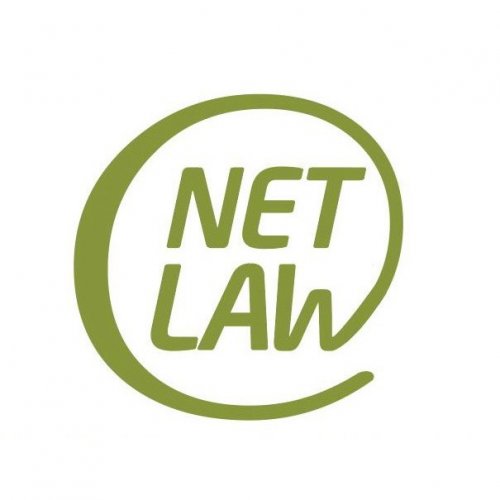Best Space Law Lawyers in Hanoi
Share your needs with us, get contacted by law firms.
Free. Takes 2 min.
List of the best lawyers in Hanoi, Vietnam
About Space Law in Hanoi, Vietnam
Space Law in Hanoi, Vietnam, is a specialized area of law that governs activities related to outer space, addressing both public and private sector concerns. While Vietnam is not yet a major player in space exploration, the government is increasingly involved in space activities through satellite technology, international cooperation, and regulatory frameworks. This fledgling field in Hanoi touches upon telecommunications, satellite data, national security, and foreign investments related to space enterprises.
Why You May Need a Lawyer
Legal counsel can be essential for individuals or organizations engaged in, or intending to engage in, activities related to outer space in Hanoi. Common situations that might necessitate legal assistance include:
- Developing or launching satellites, which requires compliance with national and international regulatory standards.
- Engaging in international collaborations that involve shared use of space technology or data.
- Securing patents or protecting intellectual property in innovative space technology.
- Navigating investments and commercial ventures in the aerospace sector.
- Dealing with issues of liability and risk in satellite deployment and operations.
Local Laws Overview
Vietnam's involvement in space and its legal framework is guided by several key aspects of local and international law:
- Vietnam's Space Development Strategy: Outlines the country's approach to developing its space technology and capabilities up to 2030.
- Telecommunications Law: Governs the use and licensing of communication satellites within Vietnam's jurisdiction.
- Investment Laws: Regulate foreign investments in the space sector, ensuring national security and technological advancement.
- International Treaties: Vietnam is a signatory to major treaties such as the Outer Space Treaty of 1967, which influences its national laws regarding space activities.
Frequently Asked Questions
What is the Outer Space Treaty?
The Outer Space Treaty is an international treaty that forms the basis of international space law. It emphasizes the peaceful use of outer space, prohibiting national claims of sovereignty and ensuring that space activities are conducted for the benefit of all countries.
Does Vietnam have a space agency?
Yes, Vietnam's space activities are primarily managed by the Vietnam National Space Center (VNSC), which focuses on research, satellite technology development, and international cooperation.
How does one get permission to launch a satellite in Vietnam?
Launching a satellite requires compliance with both national regulations and coordination through relevant government agencies like the Ministry of Science and Technology, and potentially collaboration with the VNSC.
Are there Vietnamese laws that apply to commercial space mining?
Currently, Vietnam does not have specific laws addressing commercial space mining. However, global legislation, such as international treaties to which Vietnam is a party, can have implications.
What role do international treaties play in Vietnamese Space Law?
International treaties form a significant component of Vietnamese space law, providing a framework that the country's national laws build upon, especially regarding the peaceful use of space.
What is the process for a foreign company to invest in Vietnam's space sector?
Foreign investments must comply with national investment laws and typically require approval from relevant government bodies, ensuring the alignment with Vietnam's security and economic goals.
How does Vietnam handle disputes related to space law?
Disputes are managed through national legal channels, with potential for involvement in international legal frameworks or arbitration if international parties are involved.
What is the liability for damage caused by space objects in Vietnam?
Under the Liability Convention, which Vietnam is a part of, liability for damage caused by space objects is typically with the launching state, but national laws may further define liability issues.
Can space law be applied to aerial drones?
While space law primarily focuses on objects in outer space, some legal overlaps may exist regarding high-altitude drones, which are more directly governed by aviation laws.
What are the privacy implications related to satellite data in Vietnam?
Privacy laws concerning satellite data are encompassed within Vietnam's broader data protection regulations, ensuring that satellite data usage complies with national security and privacy standards.
Additional Resources
For those seeking more information or legal assistance in space law, these resources can be invaluable:
- Vietnam National Space Center (VNSC): Central body handling Vietnam's space activities and developments.
- Ministry of Science and Technology: Regulatory body for overseeing space technology and related fields.
- Vietnam Bar Federation: For finding legal professionals specializing in space law.
- International Institute of Space Law (IISL): Offers global insights and resources on space law.
Next Steps
If you require legal assistance in the field of space law in Hanoi, Vietnam, consider taking the following steps:
- Research Local Legal Experts: Identify and contact lawyers who specialize in space law or related fields in Hanoi.
- Consultation: Arrange for consultations to discuss your specific case or query in detail and gain insights into legal strategies and compliance requirements.
- Documentation: Prepare and organize all relevant documentation related to your space activities for review by your legal counsel.
- Stay Informed: Keep updated on any changes in both national and international space law to ensure ongoing compliance and strategic advantage.
Lawzana helps you find the best lawyers and law firms in Hanoi through a curated and pre-screened list of qualified legal professionals. Our platform offers rankings and detailed profiles of attorneys and law firms, allowing you to compare based on practice areas, including Space Law, experience, and client feedback.
Each profile includes a description of the firm's areas of practice, client reviews, team members and partners, year of establishment, spoken languages, office locations, contact information, social media presence, and any published articles or resources. Most firms on our platform speak English and are experienced in both local and international legal matters.
Get a quote from top-rated law firms in Hanoi, Vietnam — quickly, securely, and without unnecessary hassle.
Disclaimer:
The information provided on this page is for general informational purposes only and does not constitute legal advice. While we strive to ensure the accuracy and relevance of the content, legal information may change over time, and interpretations of the law can vary. You should always consult with a qualified legal professional for advice specific to your situation.
We disclaim all liability for actions taken or not taken based on the content of this page. If you believe any information is incorrect or outdated, please contact us, and we will review and update it where appropriate.














